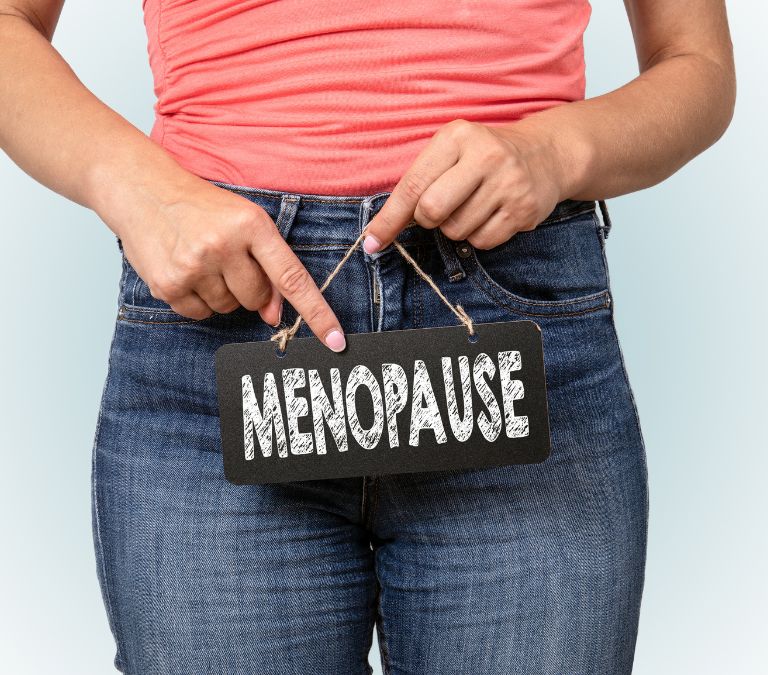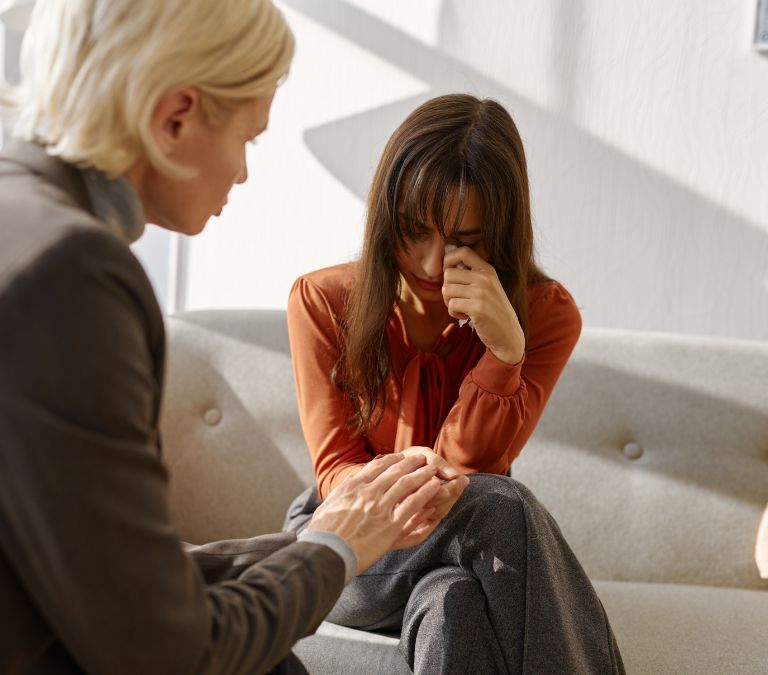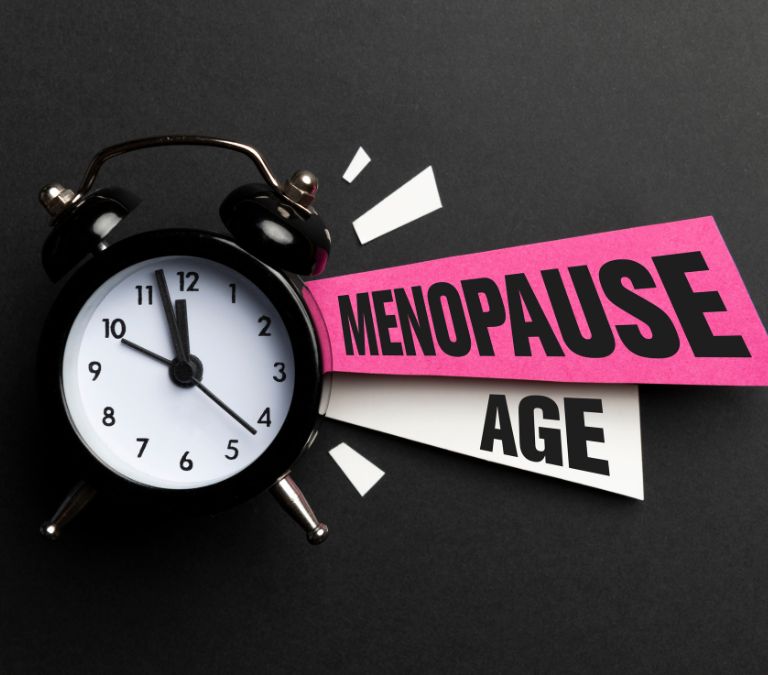A time comes in a woman’s life when her monthly period ceases, and she stops ovulating – when this time comes, menopause is said to have occurred. Menopause is a stage in a woman’s life when she cannot get pregnant again (except in rare cases ). Menopause normally occurs between ages 45 and 55; age 51 is the average age of the occurrence of menopause in the U.S. But there are many cases of early menopause.
Different researches have been able to prove that About 1% of women, menopause occurs before they get to 40 years which is what is regarded as premature or early menopause. It can also affect teenage girls or women in their early 20s. About one in one thousand women experience early menopause, that’s they are menopausal before they clock 30 years. According to the researchers, about 5% of all women in the world experience premature or early menopause between the age of 41 and 45.
This article will cover the causes, symptoms, exercises that can help relieve you of premature and early menopause symptoms, and other important facts that will be of valuable help to you.
Causes of premature or early menopause

Habits like smoking can plunge a woman into menopause at an early age.
- Genetics: This occurs in about 5% to 30% of women, and you can trace a genetic link with an affected female relative. Congenital diseases resulting from chromosomal abnormalities (Turner’s syndrome, Fragile X, etc.) could create a chance for the occurrence of premature or early menopause.
- Medical conditions: Sickness such as HIV and AIDS, Autoimmune diseases (this causes premature or early menopause in about 10% to 30% of affected women. examples are; inflammatory bowel disease, systematic lupus erythematosus or rheumatoid arthritis, hypothyroidism), and viral infections such as mumps can lead to the occurrence of premature or early menopause.
- Medical procedures: As a result of some medical procedures performed because of illness, it could also bring about menopause at an early age. Procedures like chemotherapy or radiation and surgical removal of the ovary or uterus (hysterectomy) can bring about menopause. Studies show that about one in two women who undergo treatment for Hodgkin’s disease or leukemia will experience early menopause.
- In some cases where premature menopause is caused by treatments like chemotherapy that are cytotoxic, the ovaries can start working again after some time. However, this depends on factors like the woman’s age and the type and dosage of the chemotherapeutic drugs used.
- Spontaneous (unknown cause): In about 60% of premature or early menopause cases, the cause is usually not known medically. This case is also called idiopathic premature menopause.
Symptoms of early menopause:
Irregular menstrual cycles may occur for a few years preceding the last menstrual period. Your doctor needs to identify possible causes if you notice irregular cycles.
Premature or early menopause has the same symptoms as menopause at a normal age; some of the symptoms include;
- An urgency to frequently urinate
- Discomforts at night, sweats, and cold flashes
- Insomnia
- Emotional instability
- Dryness of the vagina; discomfort during intercourse
- Infections of the urinary tract
- Dryness of the skin, eyes, and mouth
- Aches and pains in the joints and muscles
- Headaches
- Temporary loss of concentration and memory lapses
- Thinning
- Weight gain or loss
- Changes in the menstrual cycle, irregular and unusual bleeding
Diagnosing premature and early menopause
When you notice symptoms of menopause before you’ve clocked 40, several tests will be carried out on you, and your healthcare provider will also ask questions to help diagnose early or premature menopause. These tests may include:
- Providing information concerning how regular your periods have been.
- Discuss the history of your family with early menopause.
- Running tests on your hormone level (gonadotropin and estrogen).
- Checking if there is a possibility that your symptoms may result from other medical conditions.
If a woman has not noticed her menstrual period for 12 consecutive months and is not taking any medication that stops menstruation, she might have menopause.
5 exercises that can relieve symptoms of early menopause

It is very important for women facing menopause to engage in physical activities, as there is a lot it can do for you. Although physical exercises have not been proven to be a way that menopausal symptoms are reduced, you, among other things, stand a chance to relieve yourself of stress, be emotionally stable, and keep a healthy weight.
The health and human services department suggests at least 150 minutes of engagement of normal aerobic exercises per week, or at least 75 minutes of strong aerobic activities weekly for most healthy women. Also, engaging in strength training exercises is recommended at least twice a week. Be sure to explore your exercise options all through your week. Consider these 5 exercise options and their advantages:
- Flexibility and Stretching exercises:
You can adapt this as a daily routine. However, stretching your muscles is normally done before a workout session and after. It helps maintain your joints’ flexibility and preserves the range of your body’s motion.
Joint flexibility and the body’s range of motion are important as you lose these two things as you age. Therefore, it is recommended that you take a few minutes every morning and evening to stretch joints and muscles gently. Be sure not to overstretch yourself.
- Strength training exercises:
According to the National Institute of health, women in their menopausal stage are advised to engage in muscle-building exercise as it is of great importance for them as it decreases the rate of normal bone loss that eventually causes brittle bones, also known as osteoporosis. Also, strength training helps preserve the muscles, which often deteriorate in middle age.
You don’t have to go iron-pumping like a bodybuilder to get into strength training. Please, keep it simple; you can take a walk with light dumbbells. Health experts suggest you get help from personal trainers so your strength training can be efficient and effective; you get to learn the proper form and avoid harming yourself.
- Stability and balance exercises:
You must engage yourself in exercises that enable your body to be steady and upright once you enter menopause. Your balance depreciates with your age, which means you might fall as there is now a high risk of falling, and you know what it means to break a hip.
Health specialists suggest simple exercises such as standing on one leg for a couple of seconds (be sure to balance yourself against a chair or wall if you are not steady), the national center for complementary and integrative health-NCCAM suggests a moderate form of exercise called Tai chi which makes use of slow fluid movements to help obtain body balance and coordinate your muscle.
- Yoga and other exercises that aid relaxation:
There is much physical and mental stress while dealing with menopause, and there is a need to ease the tension. Yoga and meditation are activities that can help reduce this tension through their subtle approaches and deep-breathing exercises.
A study was published in the journal of sexual function. It affirms that yoga can help improve sexual function in women. Hence, this suggests yoga as a good way of relieving the menopausal symptoms of sexual changes. Also, NCCAM has credible evidence that insomnia, a common symptom of menopause, can be offset through yoga and meditation.
If you are not sure how to start yoga or meditation, a doctor can recommend an expert and trustworthy yoga practitioner for you. You can also find certified teachers in your area by contacting yoga organizations.
- Aerobic exercises:
Aerobic activities can relieve you of excess pounds and keep you healthy. For example, you can try jogging, biking, brisk walking, water aerobics, or swimming. Start with 10 minutes every day if you are a beginner; as time goes on, you can gradually increase the duration and intensity.
STAYING MOTIVATED
You should set achievable, measurable, and realistic goals. But, don’t overdo it; inconsistency lies the power. For instance, committing to 30 minutes of walking daily after dinner is more efficient and effective than inconsistent 3 hours of exercise.
As you get to higher levels of fitness, update your goals on a regular
Team up with a friend, neighbor, or partner, which can boost your motivation.
The gym is not necessary. You don’t have to go to the gym to achieve your fitness goals and relieve yourself of menopausal symptoms. Instead, you can improve your help with normal activities such as gardening and dancing. Explore the options above.
Risk factors for early menopause
There are a lot of factors that can interfere with a woman’s normal reproductive system cycle, thus, causing an earlier than normal occurrence of menopause. For example, early menopause, in some cases, might occur as a result of surgery like damage to ovaries through radiation or ovaries removal.
On the other hand, an already existing health condition or genetic disorder might cause a woman to be more susceptible to early menopause.
It is important to note that a woman can still get premature menopause without these risk factors. A risk factor is a phenomenon that increases a person’s susceptibility to a health problem or disease. Below are risk factors for early menopause.
- Radiation and chemotherapy
When a woman undergoes chemotherapy or radiation, her susceptibility to early menopause is high. The ovarian tissues can be damaged by radiotherapy, leading to an early occurrence of menopause. In addition, chemotherapy and radiation at high doses to treat cancer raise the chances of early menopause because of their toxicity to the ovaries.
Your ovaries are more likely to be affected when undergoing whole-body radiation therapy and radiation treatment around the pelvic area.
Ovaries contain one million eggs that are not yet matured at birth. These eggs are called primordial follicles. Their number decreases until menopause occurs. Then you do not have up to 1000 eggs remaining.
Women have fewer eggs remaining. Eggs that are not yet mature can no longer mature due to the effect of chemotherapy or radiation. There can be temporary or permanent loss of period after chemotherapy and radiation. Still, it doesn’t necessarily mean that your fertility is back if your period returns.
- Chromosomal defects
some defects in the chromosome can bring about an early occurrence of menopause. Chromosome defects such as Turner syndrome-when a girl doesn’t have a complete chromosome from birth, also known as gonadal dysgenesis and monosomy X. The ovaries of women with Turner syndrome don’t function well. They normally enter menopause early or prematurely.
Other chromosome defects include Pure gonadal dysgenesis, a variation of turner syndrome where the ovaries don’t work. Women who are either carriers or have Fragile X syndrome are also susceptible to early menopause.
- Epilepsy
Epilepsy is a disorder that stems from the brain and causes seizures. Women with epilepsy are more likely to have premature ovarian failure, which leads to menopause at an early age.
A study examined a group of women with epilepsy at PubMed central in 2001. The findings revealed that about 14 percent of the subjects had menopause early compared to 1 percent of the general population.
- Autoimmune disease
Autoimmune disease occurs when the immune system attacks a part of the body because it misinterprets it as an antigen or a harmful substance. Rheumatoid arthritis is an example of an autoimmune disease that causes the body’s immune system to attack the ovarian tissues and the ovaries, which can lead to premature or early menopause.
- Factors as a result of lifestyle
The age at which menopause occurs in a woman may be affected by a certain lifestyle adopted by the woman.
Smoking can contribute to premature or early menopause because of its anti-estrogen effects. Several studies at PubMed in 2012 showed that regular smokers are more likely to face menopause sooner-Menopause is likely to occur in women who smoke one or two years earlier than women who don’t smoke.
Body mass index can also contribute to early menopause. Since estrogen is stored in fat tissues, lean or thin women have less estrogen stored, which can be depleted sooner in their bodies.
Some researchers have also discovered that lack of exercise, a vegetarian diet, and lack of sunlight exposure can bring about an early occurrence of menopause.
Treatments to relieve signs and symptoms of early menopause
There is no medical treatment to reverse menopause. Instead, some treatments focus on relieving the signs and symptoms you may face. Others focus on managing or preventing chronic conditions that may come with aging.
Women who experience premature or early menopause have a period of long postmenopausal life. As a result, they are faced with higher risks of health challenges such as an earlier onset of heart disease and osteoporosis. Hence treatments to help relieve menopausal symptoms are necessary until they reach the normal age of menopause- 51.
Some of these treatments include:
- Viganal estrogen:
Estrogen can be directly administered to the vagina using a vagina tablet, ring, or cream to relieve the dryness of the vagina. The vaginal tissue absorbs the little estrogen provided by this treatment. It helps offset discomfort during intercourse, urinary symptoms, and vaginal dryness.
- Clonidine (Kapvay, Catapres):
Clonidine is a patch or pill normally used to treat high blood pressure. In addition, clonidine might provide you with some relief from hot flashes.
- Small-dose antidepressants:
Some antidepressants related to SSRIs (a class of drugs known as selective serotonin reuptake inhibitors) may offset hot flashes symptoms of early menopause. It is particularly useful for women who, for health reasons or who require an antidepressant for an affective or mood disorder.
- Hormone therapy:
Estrogen therapy is a very effective treatment option to relieve hormonal hot flashes. Your doctor may recommend estrogen therapy in the shortest time required for you to obtain symptom relief and in the lowest dose possible, depending on your family and personal medical history. You will need to add progestin to estrogen if your uterus remains intact. Estrogen also helps in preventing osteoporosis-bone loss.
Although using hormone therapy for a long time might bring about certain cardiovascular and breast cancer risks, starting up hormones during menopause has shown advantages for some women.
It is advisable to talk to your doctor and ascertain if it is safe to take hormonal therapy for you.
- Osteoporosis medications and treatments:
Depending on individual needs, doctors may prescribe appropriate medications to treat or prevent osteoporosis. Many available medications can help strengthen your bones, reducing the fracture risk and bone loss. In addition, your doctor may recommend vitamin D supplements to help relieve osteoporosis menopausal symptoms.
- Gabapentin (Neurotic, Gralise, Horizant):
This drug is beneficial for women who, for some reason, cannot use hormone therapy and experience hot flashes at night. Gabapentin does not only treat hot flashes. It is also approved to treat seizures.
Note: Talk with your doctor about these treatments’ pros and cons before deciding on any form of treatment. Also, make sure to review your treatment options every year to know if there is any need for a change.
The emotional effect of premature or early menopause

These phenomena can devastate a woman emotionally- Mood swings, hot flashes, and other symptoms that come with menopause are not all women have to deal with when they go into premature or early menopause. However, they also get to deal with some emotional and physical concerns. Below are some issues that are common with women facing early or premature menopause:
- Problems of self-esteem.
- There is no more pregnancy for a woman who is already in menopause even if she wishes to be pregnant; she has entered the end of her years of fertility.
- Fear of aging early.
- Worrying that they might not be sexually attracted to their partners.
Women need support groups and counseling sessions to help them adapt and come to terms with their experience of menopause at an early age.
Getting help from a genetic counselor
Genetic counseling may help if you have been diagnosed with menopause early due to genetic conditions. Genetic counselors are professionals whose expertise is in both genetics and counseling. Meeting a genetic counselor will not just provide emotional support; it helps you understand your condition, how it passes on (if it is inherited), and how it will affect you and your family. These professionals are trained to give you information and support that will benefit you irrespective of belief, culture, or family circumstances.
You can also find out from a genetic counselor about genetic testing options for you and other family members.
Can premature or early menopause be reversed?
Once menopause sets in, there is no going back. Currently, no treatment can reverse premature or early menopause to make the ovaries work again. However, in rare cases, the ovaries might start working again spontaneously for unknown reasons. Some studies have revealed that about one in ten women that have premature menopause get pregnant for some reasons that are yet unclear.
The available treatments will only offset the symptoms and give you a normal life.
What are the chances of getting pregnant during early menopause?
In contrast to primary ovarian insufficiency(POI), it is hard to conclude that a woman younger than age 45 is in menopause if the ovaries have not been removed surgically. It is possible for women with primary ovarian insufficiency to have irregular or intermittent ovulation, although it may or may not come with menstrual bleeding.
Other women can get pregnant using in vitro fertilization through egg donation. You may want to get a fertility specialist to check out your options. Available options will differ depending on if you still want to have kids in the future. In very few cases, fertility may be restored, making pregnancy possible.







